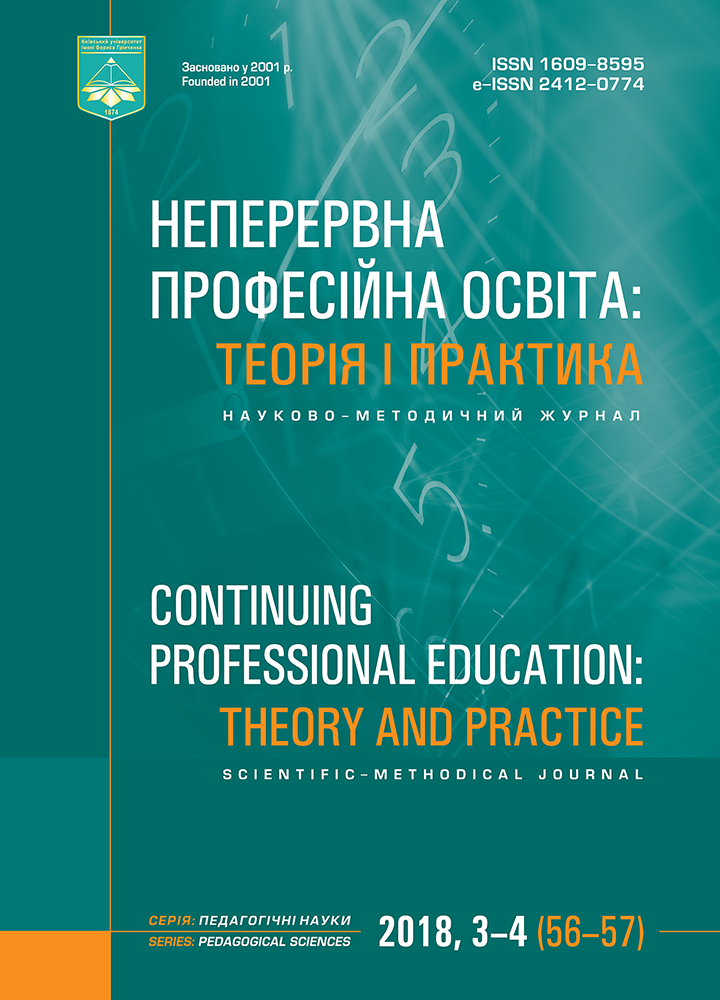PROFESSIONAL CLINIC-PHARMACEUTICAL COMPETENCY OF DOCTORS’: THE POSTGRADUATE STAGE OF FORMATION
DOI:
https://doi.org/10.28925/1609-8595.2018.3-4.7477Keywords:
continuous professional development, clinical pharmacy, clinical and pharmaceutical competence of doctor’s, distance course in clinical pharmacy, postgraduate education of doctor’s, professional competence of doctor’s.Abstract
The presented article highlights the importance of the Clinical Pharmacy as a field of national public health system; raises the question about doctors and pharmacists collaboration its necessity importance and real state of things in different countries and in Ukraine; accents the attention on insufficient number of clinical pharmacists and lack of proper cooperation between doctors and pharmacists in Ukraine; considers the question about the professional clinic-pharmaceutical doctors’ competence improving in particular with a help of specialised distance courses for doctor’s; describes the practice of some thematic distance courses on clinical pharmacy for doctor’s in some university and educational initiatives; shows the results of the doctor’s survey about the necessity of clinical pharmacy course implementation for them in Ukraine and the preferences in educational format; describes the structure and practise of author’s distance course on clinical pharmacy for doctor’s implementation in Ukraine ( a technical solution for the development of the course is the Moodle platform, the duration of the course is designed for 6 academic hours, structurally it is consists of: tasks for the entrance test control; glossary, which presents the basic concepts and terms that are considered during the course; lecture material, in the form of videos and presentations; test tasks for the current control of knowledge acquisition after reviewing the material of lectures; forum for professional discussion; as well as tasks for final test control); presents the results and comparison of entrance and final control of course participant’s in particular about the level of their confidence in the prescription of drugs, level of knowledge on the issues of rational use of medicines etc; determines the optimal format for\ doctor’s educational courses in clinical pharmacy according to the questionnaire survey results.References
Farmaciya klinichna [Pharmacy Clinical]. Farmacevtichna enciklopediya. Retrieved from https://www.pharmencyclopedia.com.ua (ukr).
Miller, R. R. (1981). An Overview of Clinical Parmacymacology. The Jourmal of Clinical Pharmacology, 21 (5–6), 238–240 (eng).
Katoue, M.G., Awad A. I., Al-Jarallah A., Al-Ozairi E., Schwinghammer T. L. (2017). Medical and pharmacy students’ attitudes towards physician-pharmacist collaboration in Kuwait. Pharmacy Practice, 15 (3), 1029. DOI: 10.18549/PharmPract.2017.03.1029 (eng).
Downloads
How to Cite
Tsekhmister, Y., & Lysenko, O. (2019). PROFESSIONAL CLINIC-PHARMACEUTICAL COMPETENCY OF DOCTORS’: THE POSTGRADUATE STAGE OF FORMATION. Continuing Professional Education: Theory and Practice, (3-4), 74–77. https://doi.org/10.28925/1609-8595.2018.3-4.7477
Issue
Section
PRACTICE OF CONTINUING PROFESSIONAL EDUCATION
License
Copyright (c) 2020 Yaroslav Tsekhmister, Oleksandra Lysenko

This work is licensed under a Creative Commons Attribution-NonCommercial 3.0 Unported License.

Licence Creative Commons Attribution-NonCommercial 3.0 Unported (CC BY-NC 3.0)


